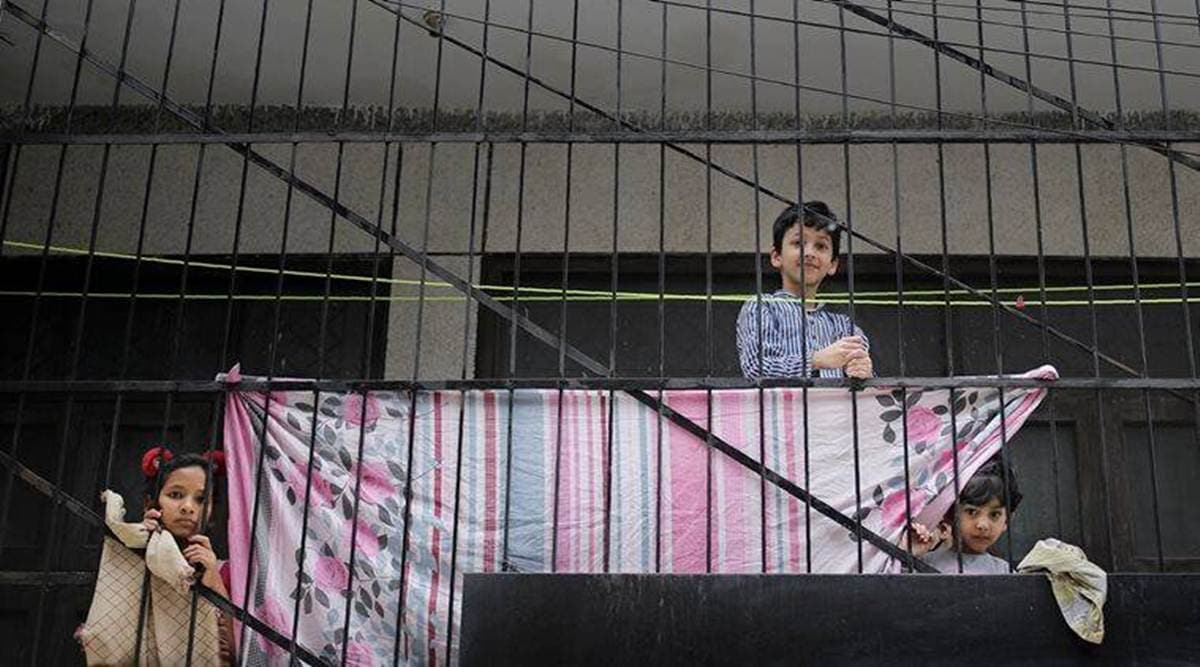 Children are mourning a sense of normalcy and routine. They take emotional cues from the adults in their lives. Their anxiety must be addressed.
Children are mourning a sense of normalcy and routine. They take emotional cues from the adults in their lives. Their anxiety must be addressed. A sense of abandonment has enveloped both young and old. Images of death, fear, and helplessness are being beamed by every TV channel, 24×7. Our faith has been challenged in these circumstances. As adults, what can we do to bring solace to our children?
Children are mourning a sense of normalcy and routine. They take emotional cues from the adults in their lives. Their anxiety must be addressed. We have to work at different levels because children feel loss and grief differently. Loss is often short-term and heals with things that may return, the rhythms and routines of life, learning gaps, friends, festivals and fellowships. But the child today is grappling with a more powerful emotion — grief. The death of a loved one and having to accept that “not only is the person gone but will not return”.
Very young children are confused about why they don’t go to school or why a familiar face in their home has disappeared. This lack of understanding sometimes helps to calm them down, if they are given love and comfort by another family member. However, between the ages of 6 and 11, children are extremely curious and looking for answers. We have to give them answers, however difficult that may be. Adolescents feel everything intensely and go through a periodic see-saw of emotions from denial to rebellion, profound anxiety to intense sadness. Some may be at risk of more intense reactions, lack of appetite, poor concentration, school avoidance, nightmares, irritability, aggression, withdrawal from activities and friendships. They need to be told that all the emotions are normal.
How does the child take the news of both parents gone, within a day of each other? Anguish, complete silence, confusion, as they return from the cremation supported by strangers. No one to grieve with, no one to comfort, alone, alienated. In all my years as an educator, I have never seen so many childhoods fragmented, so many families torn apart.
We need to offer spaces to our children, to vent, to throw tantrums, show pain, anger and angst. Our empathy, patience and compassion will help them to cope and contend with the prevailing uncertainty. Children who are high on expression have to be calmed, and those who internalise emotions have to be helped to verbalise them. They will manage with our support. Parents must reach out for help from teachers and counsellors. We should continue to engage children through problem-solving, compassion, creativity and flexibility.
Routines must be created as they provide a sense of predictability which is the only important thing in this uncertainty. It is essential that schools step in as a home away from home to help in re-framing the child’s thoughts, focusing on things other than images of despair. Teachers must address the emotions of children in an age-appropriate manner, protecting them from a negative emotion overload, helping them create gratitude journals.
Parents and teachers must give extra love and attention; one-on-one interaction with each child/sibling and not club them together. We have to remove the fear in our children’s lives by going off technology and news periodically. A sense of control over small things will help reduce fear, starting with dispelling rumours, correcting misinformation, explaining simple safety steps.
We have never experienced anything of such magnitude. We can’t let it break our spirit because it is this spirit that has helped us survive as people. For the sake of our children, let not fear paralyse us.
Let us listen and offer reassurances to our children, create family projects, play board games, sing songs of comfort together, read our favourite childhood book, recreate family albums, use words of affirmation: “You are not alone”. Ask ourselves and our children: “Am I sad? Can you tell me how you are feeling?”
Find something to praise, send out positive messages, place your hand on your heart; the mirroring effect of its beat and warmth is calming. Sit together on the floor and talk. These exercises for parents and children help.
Let us pay attention to each other and renew service, care, friendship, work and love. Today, the world may seem deeply flawed and broken but it is still a place that sustains us.
The writer is principal of Springdales School, Pusa Road, New Delhi
- The Indian Express website has been rated GREEN for its credibility and trustworthiness by Newsguard, a global service that rates news sources for their journalistic standards.

